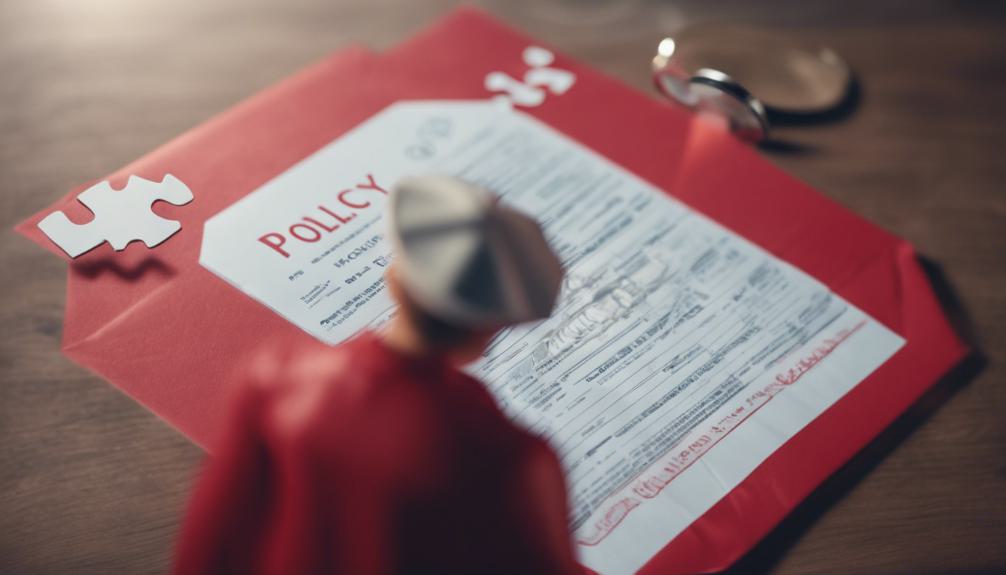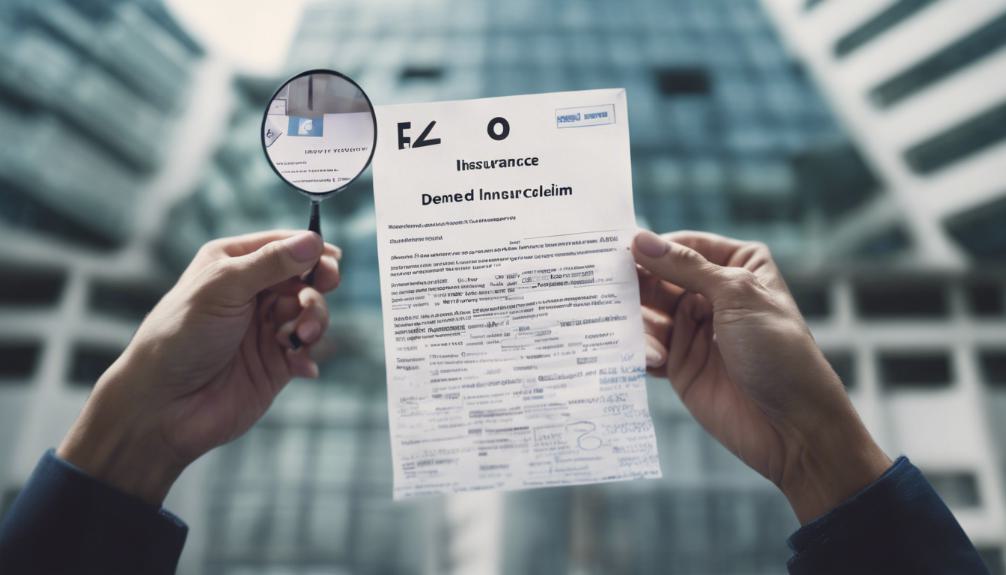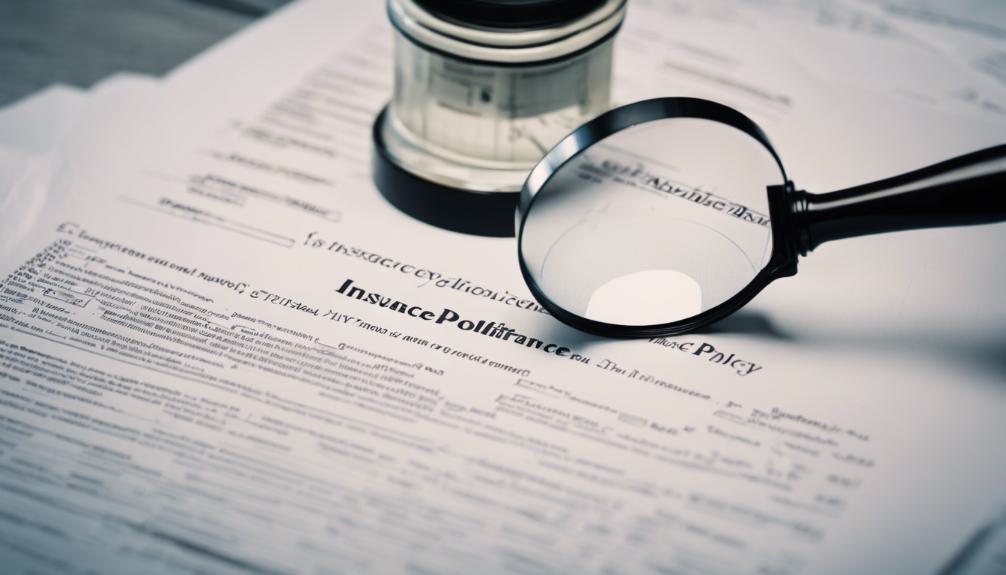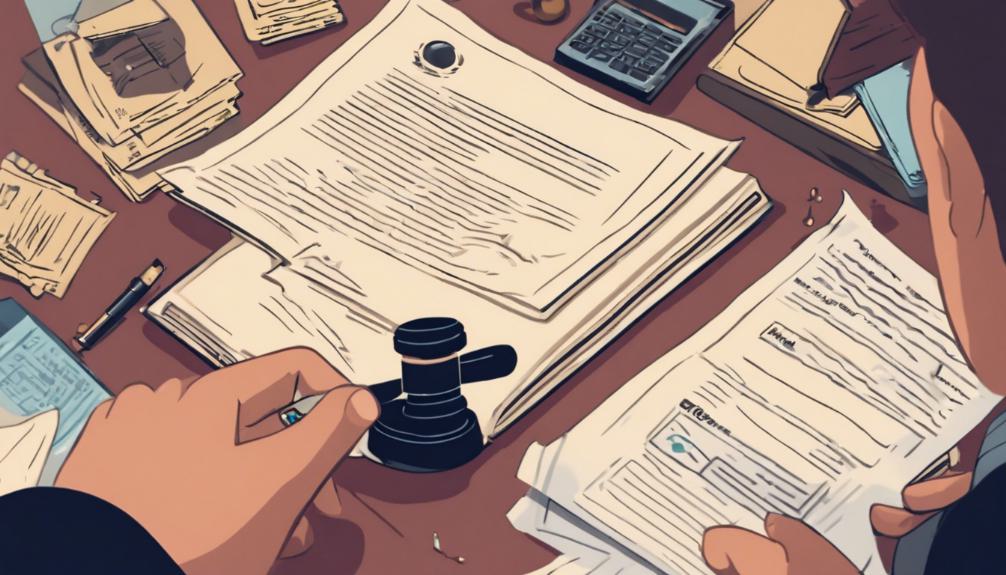What To Do If Your Insurance Claims Are Denied
Did you know that a significant number of insurance claims are denied each year, leaving many to wonder where they went wrong? If you've found yourself in this predicament, you're likely feeling frustrated and uncertain about your next steps. Understanding that a denied claim isn't the end of the road is crucial. You have options and strategies at your disposal to challenge the decision. From scrutinizing your policy to seeking legal advice, the path to overturning a denial may be less intimidating than you think. Let's explore how you can navigate this process and potentially secure the compensation you deserve.

Key Takeaways
- Understand denial reasons by requesting written clarification from the insurer.
- Review your policy to identify appeal grounds and understand exclusions.
- Gather additional evidence to support your claim, including documents and witness statements.
- File an internal appeal promptly, adhering to policy guidelines and deadlines.
Understanding Claim Denials

Traversing through the maze of insurance, it's important you understand why claims can be denied, including reasons like policy exclusions or insufficient documentation. When you file a claim, you're expecting your policy to act as a safety net, but sometimes you hit snags. Policies have specific exclusions that might not cover your particular situation, or perhaps your policy has expired without you realizing it. Another common issue is insufficient documentation. If you don't provide enough evidence or the necessary paperwork to support your claim, the insurance company might not have the grounds to approve it. Additionally, if you're found to have partial liability or a pre-existing condition that affects your claim, these factors can also lead to denials. Understanding these reasons helps you navigate your next steps effectively.
Requesting Clarification

When your insurance claim is denied, it's important to request written clarification from the insurer to understand the specific reasons behind the decision. Don't hesitate to contact them directly, stressing the need for a clear, detailed explanation. This isn't just about knowing why it was denied but also about identifying any possible errors or misunderstandings that could be rectified.
Be proactive in your communication, ensuring you're armed with the right questions. Ask about any particular terms or conditions that influenced their decision. This clarification can reveal critical insights into the denial, guiding your next steps. Remember, it's your right to know why your claim didn't pass muster, so don't shy away from seeking the information you need to move forward effectively.
Reviewing Your Policy

After receiving a denial for your insurance claim, it's important to closely review your policy's details to identify any grounds for appeal. Start by going through the fine print with a keen eye. Policies often contain complex clauses that could have been overlooked initially. Check the reasons for denial against your policy's coverage to make sure there wasn't a misunderstanding or oversight on the insurer's part.
Understanding the specifics of your policy is vital. Look for exclusions or limitations that might have affected your claim. Familiarize yourself with the terms and conditions related to your situation. If you find discrepancies or areas where your claim aligns with the policy coverage, you're better positioned to contest the denial. This step is foundational before moving forward with any appeal.
Gathering Additional Evidence

Once you've reviewed your policy and understand where your claim stands, it's important to gather additional evidence to strengthen your case. Start by collecting any new documents, photos, or videos related to your claim. If it's a matter of property damage, more pictures from different angles or times can help. For health-related claims, additional medical records or a second opinion from another doctor might make a big difference. Don't forget to jot down dates and detailed notes about any relevant interactions or events. If there were witnesses, their statements could also bolster your case. Remember, every piece of evidence should directly support your claim, showing why the denial was unjust. This thorough approach will prepare you for the next steps.
Filing an Internal Appeal

If your insurance claim gets denied, it's important to promptly file an internal appeal with your insurance company. Don't let the initial rejection discourage you. Dive right into your policy's guidelines for appeals; these are your roadmap. You'll need to gather all relevant documentation—think medical records, repair estimates, or any new evidence that bolsters your case. Write a clear, concise appeal letter that outlines why the denial should be reconsidered. Be sure to include any additional evidence you've collected since the initial claim. Timing is critical; adhere to deadlines specified in your policy to avoid missing your window. Finally, keep records of all communications with your insurer during this process. It's your right to challenge their decision, and doing so could turn the tide in your favor.
Consulting a Legal Expert

Consulting a legal expert can greatly enhance your chances of overturning a denied insurance claim. If you're feeling overwhelmed, remember that you're not alone. A specialized attorney understands the intricate language of insurance policies and can identify whether your insurer's denial falls into bad faith. They'll guide you through gathering the necessary documentation and evidence to support your appeal. Don't worry about steering the legal jargon; your attorney's there to translate and advise on the best course of action. Plus, having a legal expert by your side can deter insurance companies from trying to underpay or deny your claim unjustly. They're your advocate, ensuring you're treated fairly and helping to secure the compensation you deserve.
Considering Legal Action

When your insurance claim is denied, considering legal action may be your next step to securing the compensation you deserve. It's a challenging process, but it's essential when you're facing a refusal that seems unfair. Start by consulting with a bad-faith insurance attorney who specializes in these disputes. They'll evaluate your case, guiding you through the complexities of challenging your insurer's decision.
You'll need to gather all relevant documents, including the denial letter and any evidence supporting your claim. Your attorney can help pinpoint the insurer's breach of contract or bad faith, leveraging this information to strengthen your case. Remember, it's not just about fighting back; it's about asserting your rights and ensuring you're not left out of pocket for legitimate claims.
Accessing Resources and Support

After considering legal action for a denied insurance claim, it's important to know where to find resources and support that can guide you through the next steps. If you're feeling overwhelmed, Expertise.com's Concierge Service is a great place to start. It's free and connects you directly with top-ranked service providers, including bad-faith insurance attorneys. Just call 848-BookPro to share your needs and get the assistance you require.
Don't forget to request written clarification for your insurance denial, as it can be essential for your appeal. Also, consider consulting a personal injury attorney who understands the nuances of your policy and can fight for your right to fair compensation. Remember, you're not alone in this process.
Frequently Asked Questions
How Can I Manage My Expenses While Waiting for My Denied Insurance Claim to Be Resolved?
While waiting for your denied claim resolution, cut non-essential spending, consider a temporary job, and explore loan options. Don't forget to seek assistance from a bad-faith insurance attorney for possibly quicker settlement.
Are There Any Non-Legal Avenues or Mediation Services Available for Resolving Disputed Insurance Claims Before Taking Legal Action?
You're asking about non-legal ways to settle insurance disputes, right? Start by contacting your insurer's complaint department, then consider a state insurance commissioner's mediation service. These steps might resolve the issue without hitting the courtroom.
How Does a Denied Insurance Claim Affect My Insurance Premiums and Future Policy Renewals?
If your insurance claim's denied, it might not directly hike premiums, but could affect renewals. Insurers review claim histories, so repeated denials may flag you as high-risk, potentially raising future costs or hindering renewals.
Can I Switch Insurance Providers if My Claim Is Denied, and How Might That Impact My Case if I'm Considering Legal Action?
Yes, you can switch insurance providers after a denial, but it might affect your legal case. It's important to consult an attorney to understand the impact on your situation before making any changes.
Is There a Statute of Limitations on How Long I Have to Challenge a Denied Insurance Claim, and Does It Vary by State or Type of Insurance?
Yes, there's a statute of limitations for challenging a denied insurance claim, and it does vary by state and insurance type. Don't let time slip away; understanding these limits is essential to defending your rights.
Conclusion
In the garden of life, a denied insurance claim might feel like a sudden frost, withering your financial security. But, you're not left to weather this storm alone. Arm yourself with knowledge, peel back the layers of your policy, and let evidence be your sunlight. If the path seems tangled, a legal expert can be your guide through the thicket. Remember, even the harshest winter leads to spring. With determination and the right support, you can bloom anew, stronger than before.

This post has been generated by AI and was not reviewed by editors. This is Not legal advice. Please consult with an attorney.




